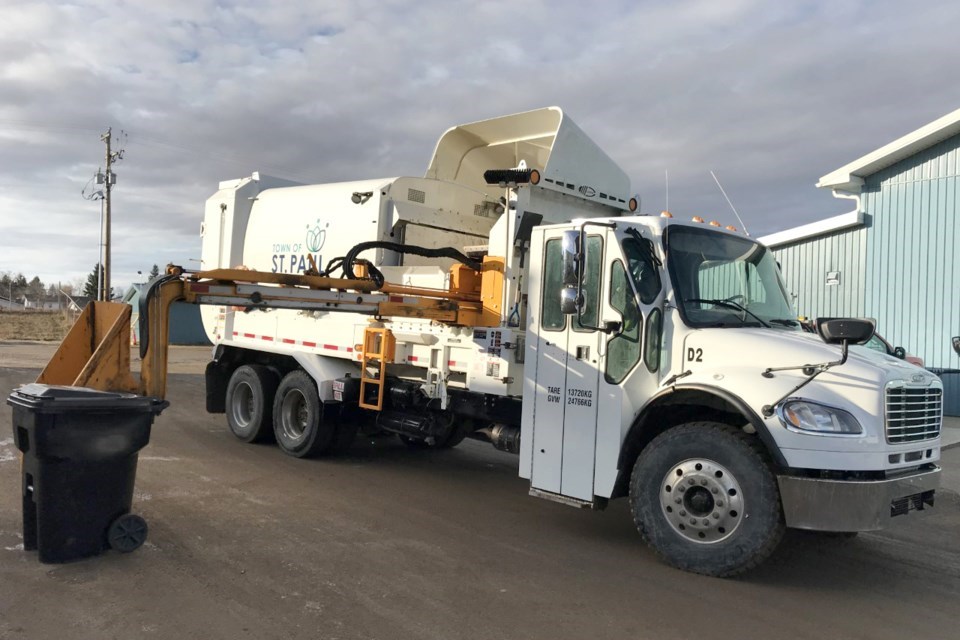ST. PAUL - The Town of St. Paul has been able to dramatically reduce its Workplace Compensation Board premiums by making safety a priority.
According to CAO Steven Jeffery, the annual cost of WCB premiums “fluctuates depending on our performance. It can range from $0.40 per $100 of payroll to $1.60 per $100 of payroll.”
In 2020, the town paid $111,136.78 in WCB premiums, but by 2023 the premium had dropped to just $41,980.67. According to Jeffery, the town’s net WCB premium in 2025 is $59,000.
Jeffery said the premium is calculated based on several factors including salaries, lost time claims, and the severity of claims in the previous four years.
One major source of lost time claims in 2020 that has been eliminated is injuries from manually emptying garbage bins into the truck. St. Paul changed its waste pick up process in 2020 and 2021 in response to reoccurring injuries to the public works staff.
“Bags would get placed at the bin that were far too heavy, making the lift into the truck more dangerous, sharps weren't being handled properly, exposing the staff to biohazards and cut hazards,” said Jeffery.
Using the new method, only one staff member is needed to collect the garbage, and the truck does the lifting and emptying of the bin.
“In the end, we've been able to provide the same or higher level of service more efficiently with a significantly higher level of safety for the employee,” said Jeffery.
He said one of the challenges with workplace safety is that changes do tend to be experience driven and come in response to either an injury or a near miss.
“Those are the opportunities that we really want to take advantage of in order to be able to analyze the incident, investigate it, so to speak, and figure out not only what the direct causes, but what the root cause was,” said Jeffery.
He said even with something as basic as slipping on ice, the immediate cause is the slippery conditions, but the root cause could be improper footwear. When the root cause is something in the way they are operating, like the old method of garbage collection, the investigation means they’re able to make an informed decision about what changes to make.
According to Jeffery, another significant cause of the reduced premiums is the modified work program.
“It keeps them engaged. It keeps them in the workforce. It keeps them around their peers. And ultimately, studies and stats show that keeping somebody involved within a modified work plan is a healthier alternative and gets them back to their duties quicker,” said Jeffery.
Asked what modified duties look like, he said they try to keep employees within their same department and doing work that is relevant to their primary job, like completing additional training or reviewing and updating safety and operational procedures.
“Ultimately, what's most important is that staff are informed of what the job is, are aware of the hazards associated with it, they receive the training that's required and if and when there is an incident, it gets reported so that further analysis can be done to prevent it from happening in the future,” said Jeffery.



